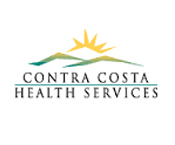 The Welcoming Policy Team has been working with deliberate speed to design patients, family members and members of our community into our system, recognizing them as essential allies in healing, recovery and in our success in meeting our community’s needs. Working to implement this policy has led to more collaborative projects with patients and family members by having them as active members on improvement teams as well as on executive teams. The Welcoming Policy Team has strengthened patient partnership in all levels of operation and ensured collective effort in achieving the best care for all patients.
The Welcoming Policy Team has been working with deliberate speed to design patients, family members and members of our community into our system, recognizing them as essential allies in healing, recovery and in our success in meeting our community’s needs. Working to implement this policy has led to more collaborative projects with patients and family members by having them as active members on improvement teams as well as on executive teams. The Welcoming Policy Team has strengthened patient partnership in all levels of operation and ensured collective effort in achieving the best care for all patients.
Nomination Narrative
At Contra Costa Regional Medical Center (CCRMC), an experience that contributed to the desire to re-evaluate visitation and the need for a welcome policy was that of a young boy who was prevented from accessing the bedside of his grandfather in the ICU because it was after visiting hours. The grandfather passed away without his grandson at his side, and his grandson lost the opportunity to say goodbye to the grandfather who raised him.
The Welcoming Policy Team, with the support of staff (including, but not limited to, doctors, nurses, security personnel, and receptionists), patients, family members, and loved ones, transformed our Visitation Policy to a Welcoming Policy to address the need to expand patients’ control over when their family members and care partners could have access to them during their hospital stays and to support family and loved-one presence. Recognizing family and loved ones as essential allies in care, the CCRMC Welcoming Policy goes beyond simply expanding visitation hours 24/7 (though that is one of the effects of the new policy). It required a key change in the thought process around the idea that family members and loved ones are visitors to the hospital: the realization that it is really the hospital staff who are visitors in the lives of the patients. A welcome policy sees the hospital as a welcoming place, where family members and loved ones are integral to the process of patient care. It allows the patient to define family for themselves, without the hospital acting as the fundamental controller over who is allowed or not allowed at their side.
The Welcoming Policy Team created new definitions for family and partners in care that are driven by the patients’ preference or patient and family-centered. A partner in care is someone identified by the patient as important to them and important to be included in the experience of care. From the CCRMC Welcoming Policy: “CCRMC recognizes that family members and/or care partners play an important part in the patient’s healing process. Family members and/or care partners, according to patient preferences, are respected as essential members of the patient’s health care team in sharing information and providing support and comfort during their health center visit, emergency room visit and/or hospital stay. They enhance quality and safety. They also provide pertinent information essential to the care plan.”
In the event that the presence of family or loved ones can’t be immediately accommodated, the hospital is committed to remaining welcoming , transparent and dedicated to working with the patient, family members and loved ones to support their presence at the bedside as soon as possible. It’s teams such as the Welcoming Policy that have led to the transformation of public spaces such as the lobby to have snacks and Internet availability as well as dedicated Skype computers to support respite and alternatives for family and loved ones as well as welcoming alternatives for care partners in the facility.
Results
Since September 17, 2013 to February 28, 2015, 10,591 patients’ family members and caretakers have taken advantage of the welcoming policy and visited the hospital after normal business hours (8:00 PM to 7:00 AM). Family members no longer have to leave patients’ bedsides. Feedback from the policy has been positive, from patients and family members who expressed relief at being able to stay together after hours. Nurses reported greater ease with communication, noting the benefits of the patient’s having access to their support systems 24/7.
The team has actively sought input and addressed any concerns from both patients and staff quickly and with respect. Furthermore, the team’s effort in bringing the patients and staff together has aligned their goal and value for best patient care and led to a huge success in policy implementation. It has resulted in not only acceptance and adoption from our employees but a sense of ownership and pride in taking an important step to support healing and recovery. The focus has remained entirely on supporting patients’ preference and in open and respectful communication.
Furthermore, the team’s successful partnership with patients and families on welcoming policy has paved the way for our organization to actively engage our patients at all levels of operation. They are valued members of various committees such as Patient Safety & Performance Improvement, Executive Leadership Operations Team, Perinatal Safety Team, Ambulatory Care Redesign and more. They are also active participants of our improvement projects such as Ambulatory Care Access, Behavioral Health Access and Rapid Improvement Events. In 2013 alone, a total of 36 patient partners have been included on committees and workgroups. Today, our patients are one of the most vital partners we have in our organization.




